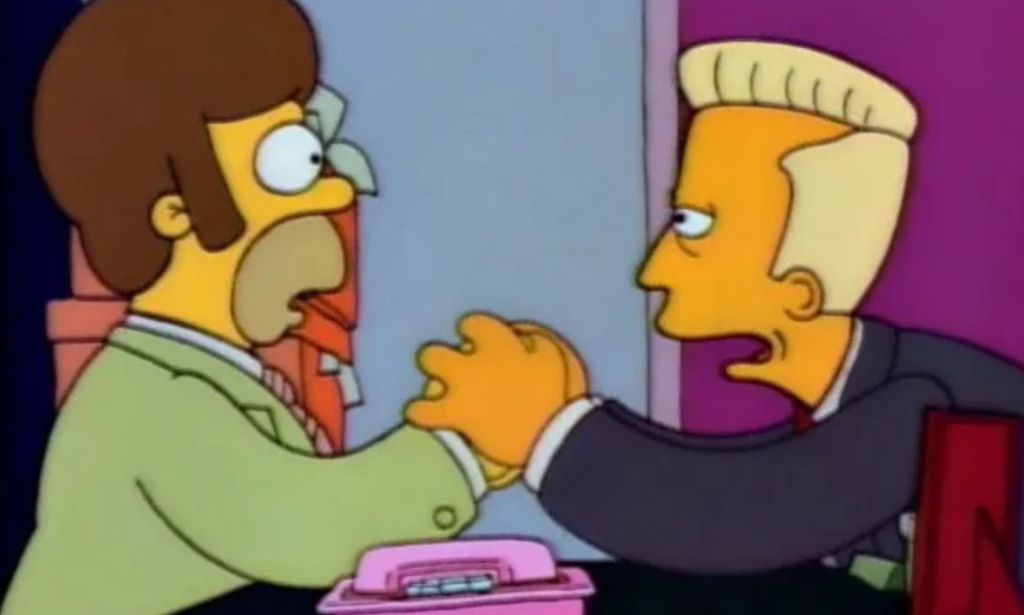Canada expecting smaller hit from Trump’s global tariffs, says N.B. premier after meeting PM | CBC News

U.S. President Donald Trump says he’ll impose sweeping global tariffs on Wednesday, but New Brunswick Premier Susan Holt says Prime Minister Mark Carney told provincial and territorial leaders that Canada is expected to sustain less damage than other trading partners.
After meeting with Carney on Friday, Holt said Sunday that it was “encouraging” to hear “it looks like we will receive a favourable — if you can call it that — level of tariffs.”
According to Holt, the prime minister told premiers the expectation is different tiers of tariffs, and for Canada to fall in the lowest level — “as low as 10 or 15 per cent.”
Not only that, the tariffs may not be applied across the entire Canadian economy, she said.
“It means that our projections in New Brunswick for a potential 11,000 people to lose their jobs can shrink down to something smaller than that,” Holt said in an interview on CBC’s Rosemary Barton Live.
On Thursday, after Trump announced a 25 per cent tariff on all finished vehicles imported into the United States, Carney spoke with reporters about the upcoming global tariffs and alluded to a relatively positive outcome.
“We have the best deal of a bad deal, is the way I would term it within what the Americans have proposed,” Carney said.
Prime Minister Mark Carney says Canada’s old relationship with the United States is over, adding that Canada will respond with retaliatory action if U.S. President Donald Trump moves ahead with his proposed auto tariffs next week. Carney said he will likely speak to Trump in the next day or two — the first conversation between the two leaders since Carney was sworn in.
The prime minister added Canada has “a number of measures” it can take in response. But he was light on details.
“In a negotiation, it doesn’t make sense to say what you’re going to do going forward,” Carney said.
Holt said the premiers discussed Canada’s retaliatory strategy and they want the response to be “appropriate, strategic and proportional.”
Carney talks to Trump
The prime minister spoke with Trump on Friday for the first time since being sworn in. The U.S. president respected Canada’s sovereignty during the conversation, Carney said.
“Perhaps there was a different impression before about how strong Canada really is,” he said during a news conference in Montreal.
Carney said the call was “cordial” and “positive.”
On Friday, Trump described his conversation with Carney as “very productive.”
U.S. President Donald Trump and Prime Minister Mark Carney hailed their first phone call as ‘very productive’ and ‘cordial,’ but while Trump refrained from referring to Canada as the 51st state, he did warn auto tariffs will kick in next week as planned.
“I just finished speaking with Prime Minister Mark Carney,” Trump wrote in a post on Truth Social.
That one line is notable in its own right given Trump repeatedly called former prime minister Justin Trudeau “governor.”
The prime minister said he and Trump agreed to sit down and negotiate a comprehensive “new” economic and security relationship between the two countries should Carney win next month’s federal election.
In the meantime, Carney said cabinet members will stay in touch with their U.S. counterparts, including Commerce Secretary Howard Lutnick.
What motivates these global tariffs?
In mid-March, several Canadian representatives went down to Washington to speak with some of Trump’s top trade representatives. Coming out of the meetings, the Canadians said they got a clearer understanding of the rationale behind Trump’s tariffs.
The focus of the U.S. government is dealing with its yearly deficit in federal spending, according to David Paterson, Ontario’s representative in Washington.
According to the U.S. Treasury Department, the federal government ran a $1.83 trillion US deficit in the 2024 fiscal year.
There are three things the U.S. government is doing that affect the deficit, Paterson said during an interview on CBC’s Power & Politics two weeks ago.
Ontario Premier Doug Ford and multiple federal officials met with U.S. Commerce Secretary Howard Lutnick in Washington on Thursday, a meeting that Ford says made him feel more positive about the Canada-U.S. trade relationship. Power & Politics hears from Ontario’s representative in Washington, D.C., David Paterson.
The first is a major budget resolution that calls for trillions of dollars in spending and tax cuts, which is “something that must not increase that deficit further while keeping tax levels and competitiveness low,” Paterson told host David Cochrane.
The other two are measures to help make the spending and tax cuts happen without growing the deficit, including slashing government spending through Elon Musk’s Department of Government Efficiency and tariffs, which are meant to be a new revenue source and attract investment into the United States.
“Tariffs are now a global policy of the United States,” Paterson said. “This is a historic change to global trading patterns, and [the Americans are] very aware of that.”





